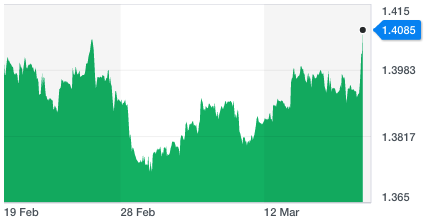Britain wins right to strike trade deals during transition – but faces race against time to replace 750
Britain will be able to strike its own trade deals next year under the terms of a Brexit deal unveiled today.
The EU has agreed that Britain will be able to negotiate and sign-off agreements during the transition period that begins on March 29, 2019.
But Britain will stop benefiting from 750 EU trade deals when the transition period ends on December 31, 2020.
Brexit Secretary David Davis and EU chief negotiator Michel Barnier clashed over the issue at a joint press conference in Brussels today.

The EU had previously said that the UK could not “become bound by new agreements” during the transition and Davis was keen to show that he had scored a victory.
He said: “The United Kingdom will be able to step out, sign and ratify new trade deals with old friends and new allies around the globe for the first time in more than 40 years.
“These will come into force when the implementation period is over, providing new opportunities for businesses across the United Kingdom and seizing one of Brexit’s greatest opportunities.”

But Barnier pointed out that the transition gave Britain just 21 months to begin replacing the 750 trade deals it currently benefits from through EU membership.
“The work that the United Kingdom has to do when it becomes a third country to establish or re-establish relations with all those partners, that work is a considerable amount of work,” he said. “There’s all the preparatory work.”
BREXIT DEVELOPMENTS – MORE ON YAHOO UK:
Article 49: What is it and how can it reverse Brexit after the UK leaves the EU?
How the ‘Brussels Effect’ will continue to run Britain’s economy long after Brexit
How will Brexit affect your finances in 2018?
Facebook widens probe into Russian influence on Brexit vote
Second vote not undemocratic, Irish PM says on Brexit
Barnier suggested that talks on a trade deal between Britain and the EU could start next month if he is given the green light to progress at the EU leaders’ summit this week.
Davis predicted it would be the “biggest, most comprehensive, most effective trade deal ever.”
British concessions
The UK Government made its own concessions in order to achieve today’s deal on the transition period, which was welcomed by business and saw the Pound hit a one month high against the Dollar.

Theresa May said only last month the status of EU citizens arriving in Britain after March 2019 would be different than those who arrived before.
Today’s deal makes clear those arriving during the transition period will have the “the same rights and guarantees.”
UKIP MEP Nigel Farage blasted: “Theresa the Appeaser has let the people down again.”
The fishing industry is also unhappy that Davis has agreed to keep Britain in the Common Fisheries Policy during the transition period.
And Mr Davis made clear the UK Government was fully committed to a deal done in December which would keep Northern Ireland in the EU’s Customs Union as a last resort to preventing a hard border.
Overall though, he insisted the agreement represented a “significant step” on ensuring a transition period which would deliver the certainty demanded by business.
Mr Barnier agreed it was a “decisive step” but warned: “We are not at the end of the road and there is a lot of work still to be done on important subjects including Ireland and Northern Ireland.”

 Yahoo News
Yahoo News 
